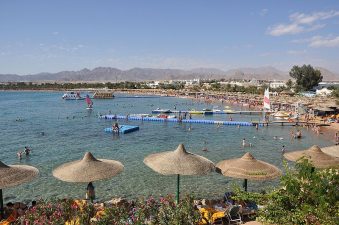 Yesterday was much like any other summer day in Israel: sunny, hot and dry.
Yesterday was much like any other summer day in Israel: sunny, hot and dry.
But for Alon Tamari, CEO of SolarPower Israel, it is not one that will be forgotten in a hurry: “It’s a historical day, there’s no other way to put it.” Along with the summer heat came the long-awaited announcement that the government will be offering financial incentives to Israeli households who produce their own clean electricity via solar panels.
“The Government started speaking about it three or four years ago and we expected the regulation in one or two years,” Tamari told Green Prophet at the Cleantech 2008 exhibition. “I’ve got 700 grey hairs since then,” said Tamari, pointing to his head. Earlier in the day at Cleantech, the Public Utilities Authority confirmed that they will be offering 20-year contracts with households to buy their solar electricity from them for NIS 2.01 per Kilowatt, which means saying “goodbye” to electricity bills and “hello” to a cheque each month from the Israel Electricity Company.
Tamari and other in the Israeli solar power sector told Green Prophet that most Israelis using solar electricity to date are doing so for ideological reasons but the high cost of installing photovoltaic cells – anything from NIS 70,000 upwards for an average family – has put the brakes on growth to date. “Many people have told us in the last few months that they are just waiting for the government to sign,” said Gilad Paldi, marketing director of Go Solar, the Israeli subdivision of California-based Ronco Electric.
The latent demand could be set to be released as the financial incentives mean that investment can be returned in under 10 years from the money saved on electric bills. But there’s just one catch. The Public Utilities Authority has decided that this is a limited-offer and will not buy solar electricity for more than seven years, or a total of 50 Megawatts (50,000 Kilowatts), whichever comes sooner. If an average home uses 2 to 3 Kilowatts, I’ll leave it you do the maths with your solar-powered calculator…
:: Israeli Public Utilities Authority announcement (Hebrew).
Related Prophecies: Israel’s 12th Annual Cleantech Exhibition at Airport City and JTA Covers Cleantech and Israel-Diaspora Relations.
Photo: SolarPower Israel panels on a Tel Aviv roof.




Yair,
The (guaranteed) life span of the solar panels is more than 20 years. It is normally considered to be 25-30 years.
The other component (the inverter) is expected to be replaced in 12-15 years. Its cost is around 10% of the system, and these units are expected to be much cheaper in the future.
Overall, it is common to chose the components (solar panel and inverter) from a known vendor with a long enough experience. Ask it from your solar system provider.
Yair, you’ll have to ask the companies. But I imagine they must be durable since it takes several years for the large sums needed for the initial investment to pay off.
Anybody know how long these solar panels last. In other words, will the homeowner have to replace them every ten years?
Just seems too good to be true for Israel…
Now this is the best news I’ve seen in a while. Thanks for posting it.